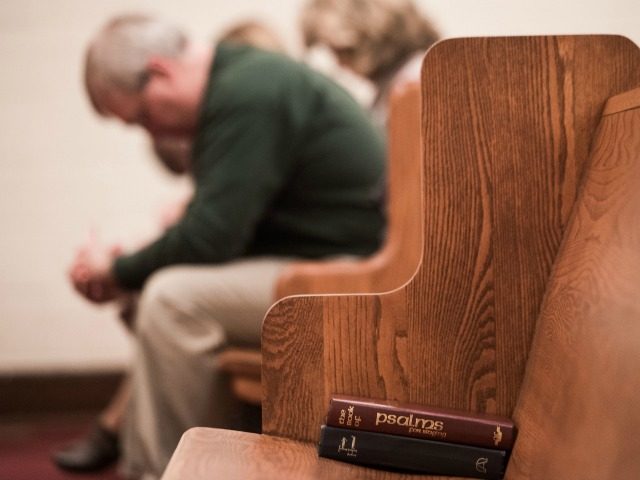The left-wing UK-based Guardian newspaper has announced “the end of white Christian America,” based on shifting demographics which now show white Christians to be a minority in the country.
Referencing a Sept. 6 report by the Public Religion Research Institute (PRRI) titled “America’s Changing Religious Identity,” Guardian writer Jason Wilson says that whereas in 1976 eight out of 10 Americans were white Christians in 1976, this group now represents less than 50 percent of the population.
At present, just 43% of the U.S. population are white Christians, according to the PRRI study. As recently as 1996, white Christians made up two-thirds of the population.
Mr. Wilson evidently bears no love for American Christians, stating that the early Christian settlers “nurtured a lurid demonology, and hunted and burned supposed witches in their midst.” Moreover, a proclivity for “millennialism, theocracy and scapegoating” has “frequently recurred in America’s white Christian culture.”
Throughout his essay, Mr. Wilson enthusiastically attempts to associate U.S. Christians with racism and white supremacy, declaring that “in the conservative mind, American Christianity has long been hitched to whiteness.” He makes this curious assertion about a country that boasts numerous, powerful and politically active black Christian churches.
Wilson alleges that the right evolved over the second half of the 20th century, learning to speak of “Judeo-Christian values,” while also engaging in “coded racial talk,” though he provides no examples of what this might look like.
“Politicized white Christian identity remains a potent force on the right,” Wilson proclaims.
What seems most to get under Wilson’s skin is the shift of southern white Christians away from the Democrat Party beginning in the early 1970s. Though Wilson attributes this shift to racial motives in the wake of the civil rights movement, he fails to mention the Democrats’ abandonment of Christian moral values, particularly its embrace of abortion on demand in the wake of Roe v. Wade in 1973.
Referencing The End of White Christian America by Robert P Jones, Wilson cites two “big reasons” behind the demographic shift away from white Christianity.
The first is “the disaffiliation of young people in particular from Christian churches,” a phenomenon most notable among America’s millennials.
A 2015 study by the Pew Research Center found that in 2007, Americans were 78.4 percent Christian whereas in 2014—just seven years later—the figure had dropped to 70.6 percent.
Simultaneously, the ranks of the unaffiliated or “nones” have jumped from just 16.1 percent of the U.S. population in 2007 to 22.8 percent in 2014. And while the members of traditional Christian faiths are getting older, the unaffiliated are comparatively young, “and getting younger, on average, over time,” the report said.
The second reason for the decline in the relative number of white Christians, Wilson asserts, is “the steady erosion of America’s white majority” due mostly to Asian and Hispanic immigration. According to Wilson, white people will be a minority in the U.S. by 2042.
In the end, Wilson gets to the political point of his essay, lamenting the election of Donald Trump and the Republican commitment to anti-abortion policies, the traditional family and religious freedom—although he couches these points in more derogatory language.
Wilson concludes that by 2024 the changes in American demographics away from white Christianity “will have become electorally decisive,” which may sound the death knell for the Republican Party and conservative influence in politics.
Or perhaps, as has happened repeatedly of late, liberal pundits will continue to disconnect from the population, leading to fanciful predictions that are wide of the mark by ever increasing margins.
Follow Thomas D. Williams on Twitter Follow @tdwilliamsrome

COMMENTS
Please let us know if you're having issues with commenting.